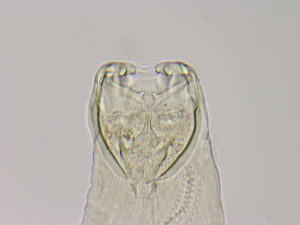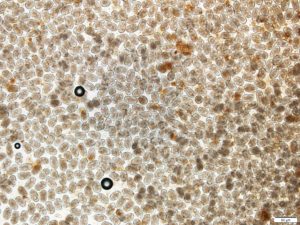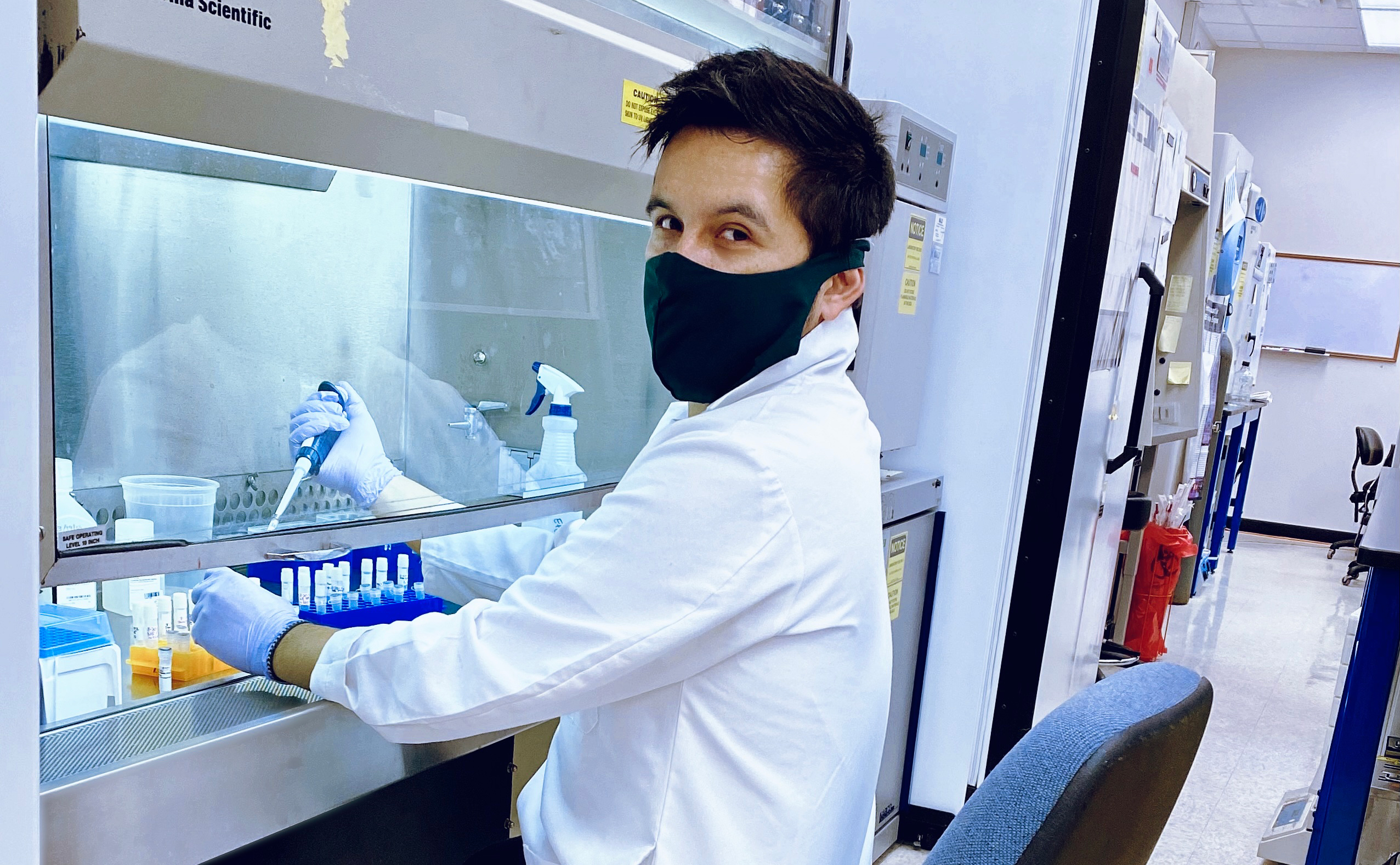As a specialist in parasitology, Dr. Ray Kaplan, professor of infectious diseases, keeps a watchful eye on the interactions between parasites and their hosts. In recent years, parasitologists noticed that racing greyhounds and recently adopted former racing greyhounds are almost always infected with hookworms. This phenomenon was believed to be just a product of the way greyhounds are raised, but Dr. Kaplan had a different view. His years of experience studying drug resistance in parasites made him suspicious that the hookworms had become resistant to the deworming drugs, so he and PhD candidate and resident Dr. Pablo D. Jimenez Castro initiated studies investigating this issue. They found that the hookworms had become resistant to all three major classes of medications used to treat these worms in the US. Dog breeds other than greyhounds are also being diagnosed with drug-resistant hookworms, indicating that these drug-resistant worms are spreading into the general pet dog population. Hookworms can also infect people by burrowing into the skin, causing a very itchy condition known as cutaneous larva migrans or creeping eruptions.
Though this might sound alarming, The Kaplan lab has been testing new treatments and has found a new drug that is highly effective. The lab is also performing studies to determine how common and widely distributed these drug-resistant hookworms are.
For veterinarians, the paper “Persistent or suspected resistant hookworm infections,” published in Clinician’s Brief, contains a great deal of useful information on how to diagnose, manage, and treat infections with resistant hookworms.

An adult canine hookworm
What are hookworms?
The common canine hookworm (Ancylostoma caninum) is a species of nematode or roundworm that infects dogs. Infection with these parasites can cause anemia, weight loss, and diarrhea that may contain mucus or blood. It is important to note that while humans can be infected with canine hookworms, these infections result in a very itchy but relatively benign condition called cutaneous larva migrans.

Canine hookworm eggs
How are dogs infected?
Hookworm eggs are passed in the feces of infected dogs. These eggs then hatch and develop over a few days to infective larvae in the feces. The larvae then escape the feces and live in the soil. Dogs can be infected by one of three different routes:
• Ingestion of infective larvae from contaminated soil
• Direct penetration of the larvae through the skin of the dog
• In young puppies, by ingesting the infective larvae in milk while nursing previously infected female dogs
The goal of the hookworms is to reach the small intestine where they will mature, mate with other worms, and lay their eggs—thus starting the life cycle over again. However, some larvae, instead of making their way to the intestine, will make their home in other tissues—entering a state of suspended activity. While in this state, they can still “leak” from these tissues and complete the cycle to the small intestine. Certain life events, like pregnancy, can also awaken the hookworm larvae, allowing them to migrate to the mammary tissue and infect puppies while they feed on the mother’s milk.
How can I protect my dog?
While there is no way to ensure your dog will not encounter hookworm-contaminated soil, you can slow the spread of the worms by being vigilant in picking up your dog’s feces. Even picking up the feces every few days can be helpful. Under normal environmental conditions, it takes 5-7 days for the larvae to reach the infective stage. Once the waste begins to break down, the larvae will have reached the infective stage and will begin seeking a host.
Kennels that allow dogs access to soil and grass in warm weather can also be risky, as the warm, moist environment allows hookworms and other parasites to thrive. However, proper management and hygiene of the kennel, and routine treatments of the dogs, can keep hookworm problems in check.
If my dog is infected, what do I do?
Normal hookworms can be easily treated by your veterinarian. After running diagnostics, your veterinarian will be able to determine the treatment best suited for your dog’s infection. In the case of drug-resistant hookworms, information from the Kaplan lab on how to diagnose, manage, and treat those infections is available here.
